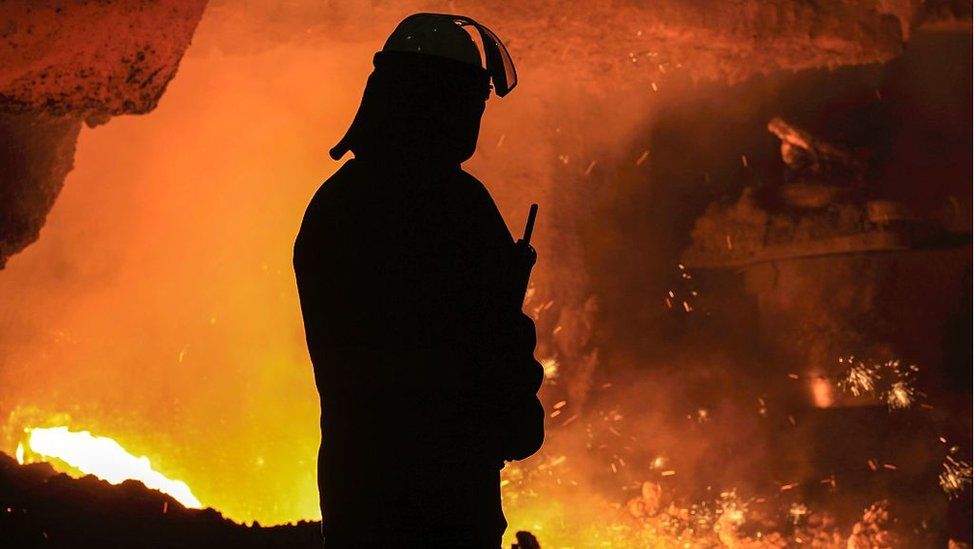ARTICLE AD BOX
 Image source, Getty Images
Image source, Getty Images
By Michael Race
Business reporter, BBC News
The UK steel industry has raised concerns that more jobs could be cut before any government support for electricity bills kicks in.
Gareth Stace, director general of UK Steel, said he feared British Steel's decision to axe 260 jobs could be the start of a trend in the sector.
The government has set out plans to reduce electricity costs for energy-intensive industries from next year.
Electricity costs have soared for firms which make steel, paper and chemicals.
On Thursday, the government proposed changes that it said would bring the energy costs of the UK's energy-intensive industries in line with those charged in the world's other major economies.
Some 300 firms - which employ 400,000 workers - that make steel, paper, chemicals and other metals stand to benefit from the changes which would see them exempt form certain costs and taxes.
Business and Trade Secretary Kemi Badenoch said the support would mean "UK industries like steel and chemicals remain competitive on the world stage".
Making steel requires a lot of energy, and with prices soaring in recent months, the costs of making the metal have also gone up.
Steel manufacturers, however, are paying about 60% more for electricity than their counterparts in other countries such as Germany, according to industry body UK Steel, due to added levies and carbon costs.
Mr Stace said the proposals from the government were "very welcome" and would go a "long way to bridging the gap" between what UK steelmakers pay compared to competitors in Europe.
But he said the fact that the proposals are set to be consulted on in the spring and are not being implemented straight away was "particularly concerning".
"We might see our electricity prices going down in just over a year's time - well, just over a year's time is a long time in steel," he told the BBC's Today programme.
He said he feared that if there was not a "competitive business environment" in the UK for the steel sector, investment would dwindle and more announcements similar to British Steel's could follow.
On Wednesday, British Steel announced it would shut its coking ovens in Scunthorpe and cut up to 260 jobs due to "unprecedented" rises in energy costs and demands to be greener.
Unions said the move was a concerning indicator about the health and future of the UK steel industry, with the biggest steelworkers' union adding British Steel cuts could have a "catastrophic impact" across the UK.
The new proposals come after the government extended an Energy Intensive Industries Compensation Scheme for a further three years and more than doubled its budget.
The scheme provides businesses with relief for the costs of certain levies in their electricity bills.

 2 years ago
39
2 years ago
39








 English (US) ·
English (US) ·